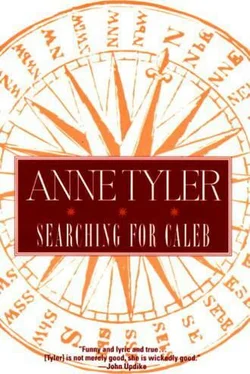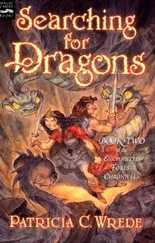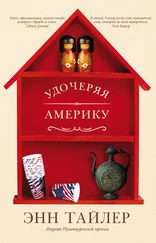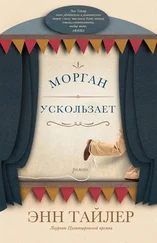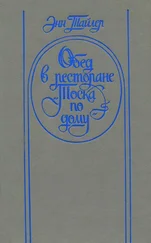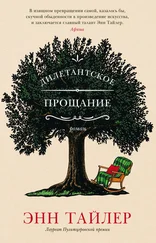Whenever Caleb chose to marry, another house would be built beside the first two, but meanwhile he lived at home with his parents. He was a quiet man who became quieter every year. It was a known fact that he drank sometimes, but he never troubled anyone and he never became rowdy or noisy. In fact Margaret Rose said she wished he would get noisy, once in a while. She was fond of Caleb. Between them they had a few old jokes, which would cause Margaret to laugh in her low, chuckly way until Caleb, in spite of himself, would let his own mouth turn up shyly at the corners. He would come talk to her in her shady back yard, waiting patiently through all her children’s interruptions and requests and minor accidents. And several times she gave evening parties expressly to introduce Caleb to one or another of her pretty cousins. Girls always liked Caleb. But though he might dance with them or take them for a drive, he didn’t seem interested in marriage. More often now he stayed home in his room, or he toured the taverns, or he went someplace else, no one knew where. Really, not even Margaret Rose could say for sure what Caleb did with himself.
For Christmas one year, Margaret persuaded Daniel to buy Caleb a Graphophone. She thought it would be the perfect gift for someone so musical. Along with it came disc recordings of Caruso, Arturo Toscanini, and Jan Kubelik on the violin. But these discs affected Caleb the way formal concerts did; he became restless and absent-minded and unhappy. He started pacing across the carpet and up and down the hall and eventually straight through the front door and out of sight, and was not seen again for the remainder of the day. So the Graphophone was never taken up to his bedroom, as Margaret had intended, but drifted into Justin’s room instead, where it amused the old man for hours on end. He seemed particularly fond of Caruso. He would order Margaret to stand beside his bed cranking the machine and changing the heavy black discs. Margaret was surprised. If this was the way he felt, why had he forbidden Caleb’s music in the house?
For Caleb continued to spend all his money on musical instruments — wooden flutes and harmonicas and cellos and even stringed gourds that only colored people would think of playing. He kept them in his room, but he was not allowed to sound a note on them where Justin could hear. In fact, even the piano was forbidden now, and had been exiled to Daniel’s house, where Margaret Rose could tinkle out Czerny without disturbing her father-in-law. If Caleb wanted to make music he had to go far away, usually to the old Samson stable on the other side of a field. He would sit in the loft door blowing whistles or sawing out stringy little street tunes, and only wisps of his music drifted up to the house, never as far as Justin’s densely curtained sickroom. Yet Justin always seemed to know when Caleb had been playing, and he would turn his face away irritably when Caleb stopped by later to offer his meticulous, patient account of the previous week’s business.
Meanwhile Daniel’s house was filling up with children, and his practice was swelling, and he already had it in the back of his mind to become a judge someday while his sons carried on with the law firm. When he came home evenings, and Margaret ran up in her rustling, flowery dress to fling her arms around him, he would be remote and sometimes annoyed. His head was still crowded with torts and claims and statutes. He would set her gently aside and continue toward his study at the rear of the house. So for someone to talk to, Margaret tried giving afternoon tea parties. She invited her cousins and her girlfriends, who came tumbling in crying, “Maggie! Maggie Rose!” and kissing both her cheeks in the new way they had learned from Aunt Alice Bell, who had recently been to Paris. But Daniel said that he was not partial to these affairs. Oh, in the evening maybe, clients or business friends occasionally . . . he didn’t want to be unreasonable, he said, but actually he expected his home to be a refuge from the outside world. And nowadays when he came in from a hard day’s work he would be sure to find some unknown lady sitting on his leather chair, or a spectacular feather hat on the dining room buffet beneath Sarah Cantleigh’s portrait, and once even the brass paperweight moved to the other side of his blotter, when everyone knew that his desk was forbidden territory. Besides, didn’t she think she would be better off devoting those hours to her children?
They had six children. In 1905 Justin II was born, in 1906 Sarah, in 1907 Daniel Jr., in 1908 Marcus, in 1909 Laura May, in 191 °Caroline.
In 1911, Margaret Rose left home.
She had wanted to take the children to Washington on the train for her mother’s birthday. Daniel didn’t think she ought to. After all, she was a Peck now. What did she want with the Bells? Who at any rate were an undisciplined, frivolous, giggling lot. She said she would go anyway. Daniel pointed out that she was her own mistress, certainly, as everyone in his family had noticed more than once, but the children were his . And sure enough, there sat Daniel’s children in a little bundle staring up at her, all Peck, blue Peck eyes and hair that matched their skin, solemn measuring Peck expressions, not a trace of Margaret Rose. She could go, Daniel said, but she couldn’t take the children. And he expected her back on Saturday evening, as there was church to attend Sunday morning.
She went.
Saturday evening Caleb met the train but Margaret was not on it. When Daniel found out he merely pressed his lips together and walked away. Later he was heard telling his mother’s servant Sulie to put the children to bed. Apparently no inquiries were going to be made.
On Wednesday Daniel received a letter from Margaret’s father. He wrote in brown ink. Everyone knew that ink, because when Margaret’s father wrote she would race through the house reading passages to different people and laughing at the funny parts. But Daniel read this letter in silence, and then went up to his room. When he came down again nothing at all was said about it.
In a month the children stopped asking for their mother. The baby stopped crying and the older ones went back to their games and nursery rhymes. Only Caleb seemed to remember Margaret Rose. He went up to Daniel one day and asked him point blank why he didn’t go after her. Or Caleb himself would, though Daniel would be better. Daniel looked straight through him. Then Caleb went to Justin, who certainly loved Margaret Rose too and used to wait every day for the fluttering of her petal skirts against the banister. Now Justin merely closed his eyes and pretended not to hear. “But why?” Caleb asked him. “Don’t you care? Life is not the same here when Maggie Rose is gone.”
In all the accounts of the family history, told by all the aunts and uncles and upstairs maids, that was the only direct quotation of Caleb’s that was ever handed down. Two generations later it was to ring in Justine’s ears like poetry, taking on more depth and meaning than Caleb had probably intended. But Justin was not moved at all, and he kept his eyes shut very tightly and waited for his son to leave.
* * *
Now Laura ran both households, upright and energetic as ever in her ugly brown dresses with her hair screwed back so tightly it stretched her eyes. To the Peck children she was the center of the universe, sometimes the only family member they saw for days. Justin was too old and sick to be bothered, and Daniel hardly ever came home before their bedtime. As for Caleb, he kept to himself. They might catch sight of him striking out across the field toward the Samson stable, the sunlight pale on his Panama hat; or leaving for work in the morning, already tired and beaten-looking; or returning late in the evening with his manner of walking curiously careful. He never played with them. Sometimes on those extra-careful evenings he even got their names confused. He did nothing to earn their attention. So they failed to notice how he appeared to be dimming and wearing through, almost transparent; and how his only friends now were the questionable types in taverns, and how the music from the stable had thinned and shredded until you almost couldn’t hear it. Laura noticed. But what could it mean? She pondered over his long, unbreakable silences, the likes of which she had not seen before and would not again until the days of Caleb’s great-nephew Duncan, as yet unborn and unthought of. She tried to shame him into more normal behavior. “Where is your common courtesy? At least think of the family.” But he would only wander off, not hearing, and sometimes he would not reappear for days.
Читать дальше
